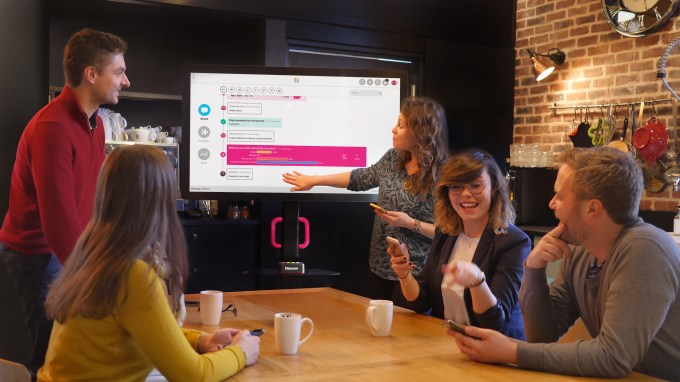It’s often the case that women don’t think much about their reproductive health until they have to. Sometimes it begins with an aside from a well-meaning gynecologist — or one’s impatient parents. Sometimes, it’s because a couple is ready to try conceiving and it’s proving harder than they imagined it would be.
A San Francisco-based startup called Modern Fertility wants to educate women about their reproductive health much earlier in their lives, enabling them to become more “proactive” instead of reactive, says co-founder and CEO Afton Vechery, who worked formerly as a product manager at the genetic testing company 23andMe and, before that, at a healthcare-focused private equity firm in Greenwich, Conn.
At both places, she learned a lot about the growing number of companies that are empowering customers with information about their own bodies. She also learned, particularly at 23andMe, about the importance of making that information affordable. Indeed, after shelling out $1,500 for tests run by a reproductive endocrinologist to get a better picture of her own reproductive health, Vechery set out to create similar tests that one needn’t be a Rockefeller to order. Toward that end, an at-home finger-prick hormone test that Modern Fertility began selling today for $199.
The vast difference in price owes to economies of scale, says Vechery. Because there are just 500 infertility clinics in the U.S. and roughly 6,000 endocrinologists — just 2,000 of which are focused on reproductive health — the cost of individual testing has been prohibitively high. Modern Fertility, meanwhile, has “systems and tech and integrations that support a high volume of tests” conducted at the same time, she says, explaining that with volume comes discounted pricing.
Modern Fertility is not analyzing its customers’ hormones. It is using all CLIA-certified labs, including Quest Diagnostics, the 50-year-old, publicly traded clinical laboratory company. “We’re not making new instruments,” says Vechery. “Our differentiation is in access and the information that we provide to women.”
In fact, Modern Fertility is billing itself as more of an educational company than anything else. While it will tell consumers about nine hormone levels related to ovarian reserves and overall reproductive health — which can be important, especially when it comes to considerations around egg freezing — much of what it offers is related to content based on peer-reviewed studies about menopause and when women typically start to lose their fertility.
Customers also receive one optional one-on-one phone consultation with a fertility nurse who won’t give out medical advice but can share more information about which hormones are being tracked and why.
For the price, that may be enough for many women. It was enough for investors. Modern Fertility just closed on $6 million in funding led by Maveron and Union Square Ventures, which were joined by Sound Ventures, #Angels, SV Angel and additional individual investors.
No doubt these backers see a future where an offering like that from Modern Fertility is a perk offered by employers, more of which are offering fertility benefits to keep their employees happy and in place. Already, Vechery says that a “handful of companies” are interested in layering Modern Fertility’s tests into their other wellness benefits.
Modern Fertility is also counting on repeat customers, suggesting to them that re-taking its test every now and then will give a woman a better idea of how her “fertility curve” is changing over time.
Most immediately, says Vechery, Modern Fertility — co-founded by Carly Leahy, a creative strategist who moved to California from Boston in 2014 after Google recruited her, and who most recently logged two years at Uber — will be adding to its current, eight-person team.
It also will be “trying to understand the best way it can get this information” to potential customers, says Vechery. “We want to meet women where they are and educate them that this type of testing is important.”
Pictured above: Modern Fertility co-founders Afton Vechery, left, and Carly Leahy
from TechCrunch
via
Click me for Details




